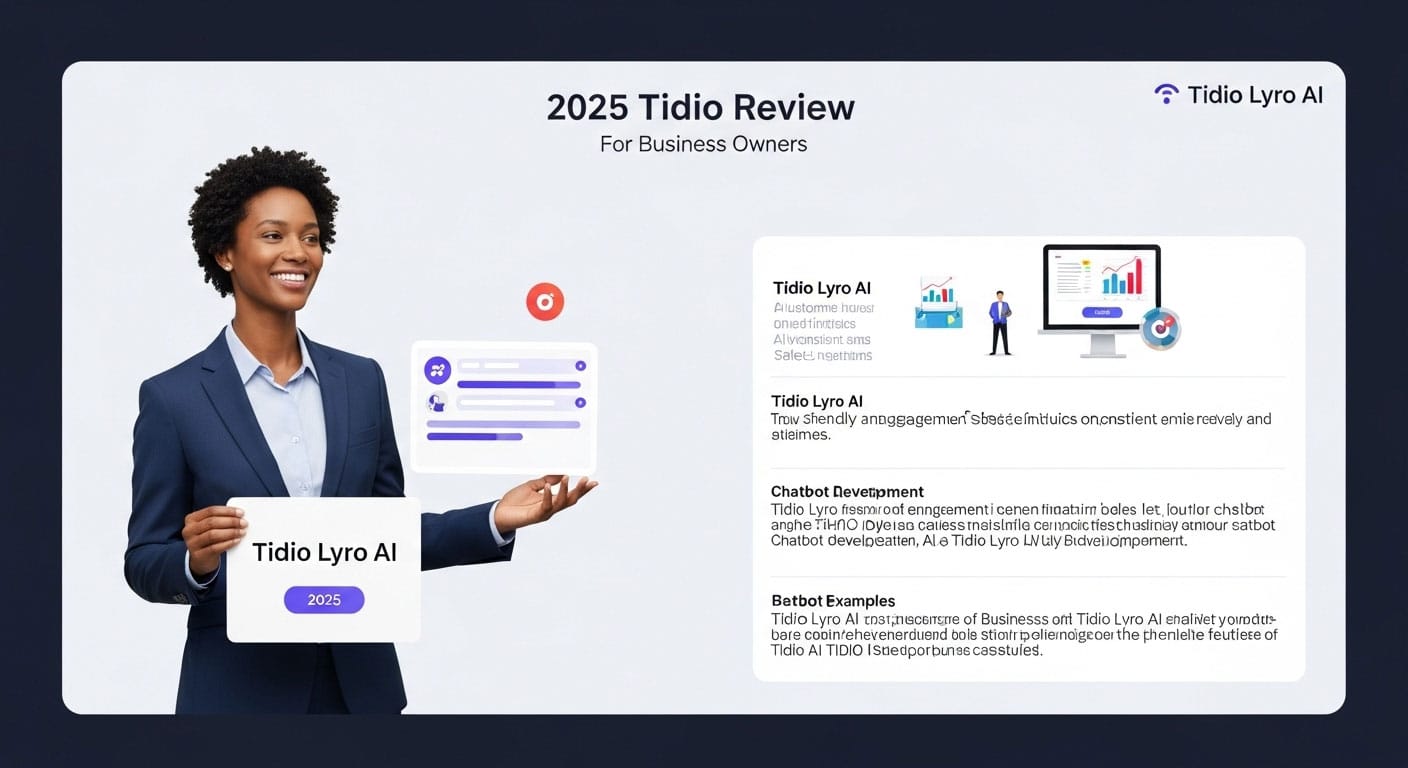For small and medium-sized businesses (SMBs), especially in the e-commerce space, finding a customer service platform platform that balances powerful features with ease of use and affordability can be a major challenge. Tidio aims to solve this problem by offering an all-in-one customer experience suite, with its advanced conversational AI, Lyro, as the main attraction. This comprehensive review, based on in-depth research, analyzes the platform’s capabilities, performance, and real-world value to help you decide if it’s the right investment for your business.
What is Tidio? An All-in-One Customer Service Suite
Tidio positions itself as the premier customer experience platform for SMBs, bridging the gap between basic free chat tools and complex, expensive enterprise solutions like Intercom or Zendesk. Its core value is consolidating multiple essential tools into a single, user-friendly dashboard. The platform is built on four key pillars:
- Live Chat: The foundation of the platform, providing real-time, one-on-one conversations. It includes advanced features like a live typing preview (so agents can see what customers are typing before they hit send), canned responses for quick replies, and real-time visitor tracking to provide valuable context.
- Help Desk: A built-in ticketing system that transforms asynchronous communications (like emails or follow-up chats) into trackable tickets. This ensures no customer query is lost and allows teams to tag, prioritize, and assign issues for organized resolution.
- Flows (Rule-Based Automation): A no-code, visual chatbot builder that lets non-technical users create deterministic conversation paths. Users can set up triggers (e.g., a visitor is on a page for 30 seconds), actions (e.g., send a discount), and conditions to automate predictable interactions like lead generation or simple problem-solving.
- Multichannel Inbox: This feature unifies communications from your website chat, email, Facebook Messenger, Instagram, and WhatsApp into a single, manageable stream, preventing fragmented conversations and improving agent efficiency.
A Deep Dive into the Tidio Lyro AI Agent
While Flows handle predictable automation, Lyro is Tidio’s leap into true conversational AI. It is designed to understand the intent behind complex human language and provide accurate, helpful responses without human intervention. The capabilities of the Tidio Lyro AI agent are a game-changer for resource-constrained teams.
Key Capabilities and Technology
Lyro is engineered to autonomously resolve up to 70% of common customer inquiries, dramatically reducing response times and freeing up human agents. Its intelligence is powered by a sophisticated hybrid architecture:
- Powered by Anthropic’s Claude: Tidio deliberately chose Claude as its foundational Large Language Model (LLM) for its superior reliability and safety-first design, aiming to provide “helpful, honest, and harmless” interactions.
- Proprietary “Guardrails”: Tidio pairs Claude with its own in-house AI models. These models act as a “safety cage,” forcing Lyro to generate answers based only on the information provided in your business’s own knowledge base (e.g., your FAQ page). This is the key defense against AI “hallucinations” (inventing incorrect information), ensuring brand safety and accuracy.
For e-commerce, Lyro can integrate with Shopify to check inventory, provide product recommendations, and check order statuses. It also features a seamless “1-second handoff” to a human agent whenever a customer asks or the query is too complex, ensuring a smooth customer experience.
Performance and Real-World Impact
An analysis of user reviews and official case studies shows that Tidio delivers tangible results, but its value proposition is nuanced.
Commonly Praised Strengths:
- Exceptional Ease of Use: The most consistently praised attribute is the intuitive, clean interface and simple, no-code setup.
- All-in-One Value: Users love having live chat, a help desk, and chatbots in one affordable package.
- Effective Automation: Both Flows and the Lyro AI are highly effective at automating support and generating leads 24/7.
Common Weaknesses and Challenges:
- Scaling Costs: The most significant complaint is the usage-based pricing model, which can become expensive and unpredictable as conversation volume grows.
- Feature Gating: Key features like API access or removing Tidio branding are locked behind expensive high-tier plans.
- Technical Quirks: Some users report a learning curve for advanced features or challenges with third-party integrations like Zapier.
Quantifiable ROI from Case Studies:
Tidio’s case studies demonstrate a powerful return on investment when the platform is fully leveraged. The impact of the Lyro AI agent is particularly significant.
- Support Automation: Companies like Gecko Hospitality and Axioma report automating 90% and 89% of customer conversations, respectively.
- Efficiency Gains: MattressNextDay saved over 400 hours of agent work monthly.
- Revenue Generation: Med spa Bella Santé generated over $66,000 in Lyro-assisted sales, while e-commerce store eye-oo saw a €177,000 boost in revenue.
Competitive Landscape: Tidio vs. The Market
Tidio occupies a strategic niche in a crowded market. It competes by offering the best balance of power and simplicity for SMBs. Here’s how it stacks up against key rivals:
| Feature/Aspect | Tidio | Intercom | Gorgias | Freshdesk |
|---|---|---|---|---|
| Primary Target | SMBs, E-commerce | Mid-Market, Enterprise | E-commerce (all sizes) | SMB to Enterprise |
| Core Strength | All-in-one, Ease of Use | Proactive Engagement | Deep E-commerce Integration | Omnichannel Ticketing |
| AI Agent | Lyro (Claude-based) | Fin (GPT-4 based) | AI Agent | Freddy AI |
| Pricing Model | Usage-based (conversations) + Add-ons | Per-seat + Usage | Usage-based (tickets) | Per-seat + Add-ons |
Final Verdict: Is Tidio Lyro AI Right for Your Business?
Tidio is a best-in-class solution that successfully democratizes powerful customer service technology for the SMB market. It offers a remarkable blend of power and simplicity. However, its complex, usage-based pricing model demands careful forecasting.
Who Should Buy Tidio?
- SMBs, particularly in e-commerce, looking to upgrade from basic tools.
- Businesses that prioritize ease of use and rapid, no-code implementation.
- Teams seeking an efficient, unified platform for multichannel support.
- Risk-averse companies that value the brand safety and reliability of Tidio’s conversational AI.
When to Consider Alternatives:
- Large enterprises with highly complex, bespoke workflow and security needs.
- Businesses on a fixed budget that cannot tolerate unpredictable, usage-based costs.
- Companies that require deep API access but cannot afford the $749/month+ Plus plan.
For businesses that fit the ideal profile, Tidio Lyro AI is a top contender. To ensure success, start with the free plan to test the core features, invest time in building a high-quality knowledge base for Lyro to learn from, and carefully forecast your conversation volume to estimate your total cost of ownership before committing to a paid plan.





